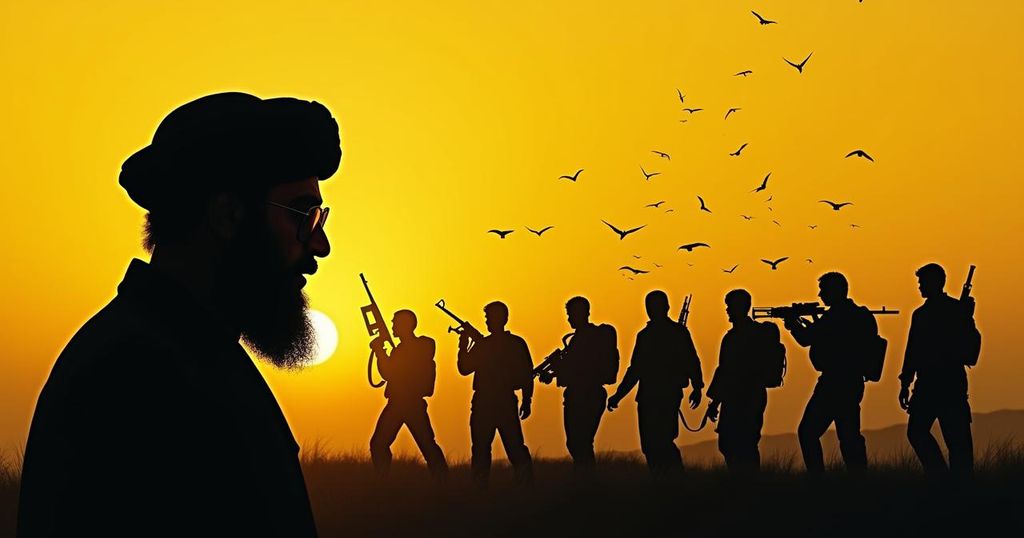Hassan Nasrallah: The Charismatic Leader of Hezbollah
Hassan Nasrallah, leader of Hezbollah for over 30 years, has greatly influenced the group’s evolution into a major paramilitary organization in the Middle East. Known for his charisma and strategic leadership, he has engaged in numerous conflicts with Israel and has been a key player in the Syrian civil war, forming alliances that bolster Hezbollah’s stance. His leadership is characterized by an aggressive military strategy and a commitment to resisting Israeli operations while maintaining a hidden profile due to safety concerns.
Hassan Nasrallah, the longstanding leader of Hezbollah, has significantly shaped the militant group over his three-decade tenure, establishing it as one of the dominant paramilitary forces in the Middle East. Known for his charisma and strategic acumen, Nasrallah has led Hezbollah in conflicts with Israel while also playing a vital role in the Syrian civil war, fortifying alliances with Shiite political leaders in Iran and various Palestinian factions, including Hamas. Nasrallah, born in 1960 to a modest Shiite family in Beirut’s Sharshabouk, became involved in the political landscape during the tumultuous Lebanese civil war. After studying theology and joining the Amal movement, he became a founding member of Hezbollah, which was established with the support of the Iranian Revolutionary Guards during Israel’s invasion of Lebanon in 1982. Following the death of Hezbollah’s original leader, Abbas Musawi, in 1992, Nasrallah was appointed as Secretary-General. Under his leadership, Hezbollah became instrumental in resisting Israeli occupation, achieving a significant victory when Israeli forces withdrew from southern Lebanon in 2000. Nasrallah’s influence extended beyond military achievement; he became a cultural and political figure revered by many Shiites and respected across the broader Arab and Muslim communities. His status was further enhanced during the 2006 war, where Hezbollah managed to fight Israel to a standstill, reshaping his image into that of a formidable leader. More recently, since the outbreak of the Israel-Hamas conflict on October 7, Nasrallah has adopted an aggressive stance, declaring Hezbollah’s readiness to launch attacks on Israeli targets, framing them as a supportive measure for the Gaza militants. Despite his power, he has remained largely hidden, keenly aware of threats to his life, especially from Israeli operations.
The article examines the significant role of Hassan Nasrallah in shaping Hezbollah’s trajectory over the past 30 years. It provides insight into his leadership style, political maneuvering, and the impact of his strategies on the regional landscape, including Hezbollah’s military engagements with Israel and its involvement in the Syrian conflict. Furthermore, the article delineates his rise to prominence, the formation of Hezbollah, and the organization’s evolution into a significant military and political entity in the Middle East.
In conclusion, Hassan Nasrallah’s leadership has been pivotal in transforming Hezbollah into a formidable force within the Middle East. His strategic prowess and ability to cultivate alliances have fortified the organization’s position against Israel while maintaining its influence in regional politics. Despite the accompanying dangers of his role, Nasrallah has maintained a prominent position, continuously shaping the narrative and actions of Hezbollah amidst ongoing conflicts.
Original Source: apnews.com




Post Comment